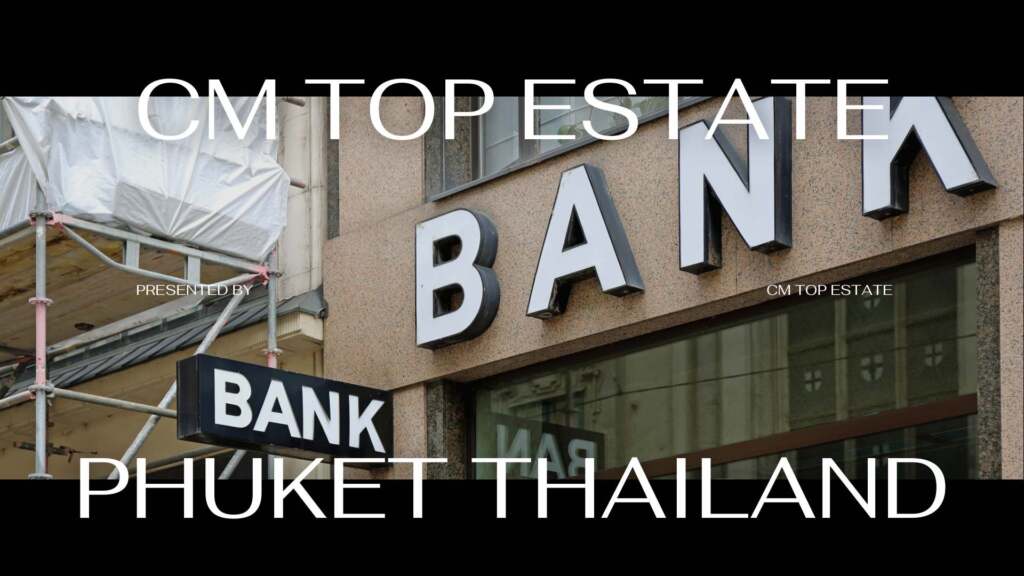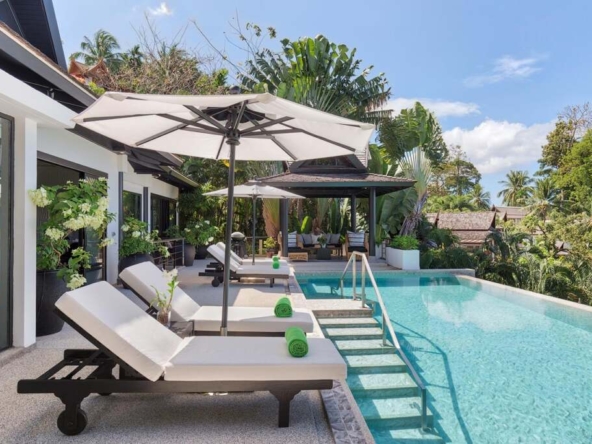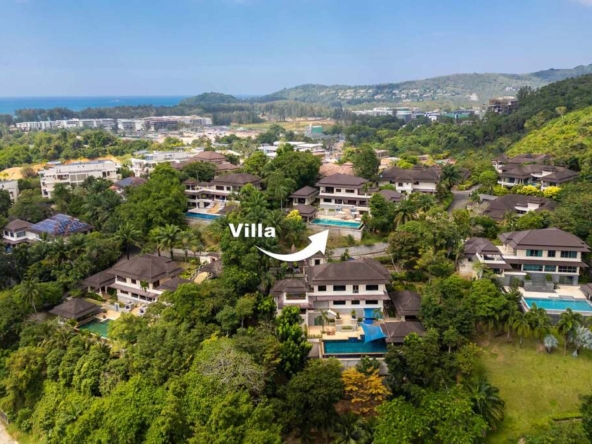Mortgages for foreigners in Thailand are available, but they come with specific conditions and limitations.
Here’s a detailed overview and aspects will help you navigate the process more effectively:
1. Eligibility Criteria
- Nationality: Generally, only foreigners from certain countries are eligible for mortgages foreigners in Thailand. These include most Western countries, Asian countries like Japan and Singapore, and others where local Thai banks have established lending programs for foreigners.
- Income Proof: You will need to provide proof of a stable income, typically through bank statements, tax returns, and employment contracts.
- Work Permit: Some banks may require that you hold a valid Thai work permit or have a business in Thailand.
- Age: The age limit for loan applicants is generally between 21 and 65 years old, with the loan typically needing to be repaid by the age of 65.
2. Key Features of Thai Mortgages
- Loan Amount: Typically, Thai banks offer loans covering 70-90% of the property’s value for Thai nationals. For foreigners, the loan-to-value (LTV) ratio is often lower, usually around 50-70%.
- Interest Rates: Mortgage interest rates in Thailand are generally between 3% and 8%, depending on the type of mortgage, the bank, and the borrower’s financial profile. Fixed and floating rates are available.
- Loan Tenure: The typical loan tenure in Thailand ranges from 10 to 30 years. The maximum tenure is usually shorter for foreigners, often capped at 25 years.
- Down Payment: The down payment for a mortgage foreigners in Thailand typically ranges from 10% to 30% for Thai citizens and 30% to 50% for foreigners.
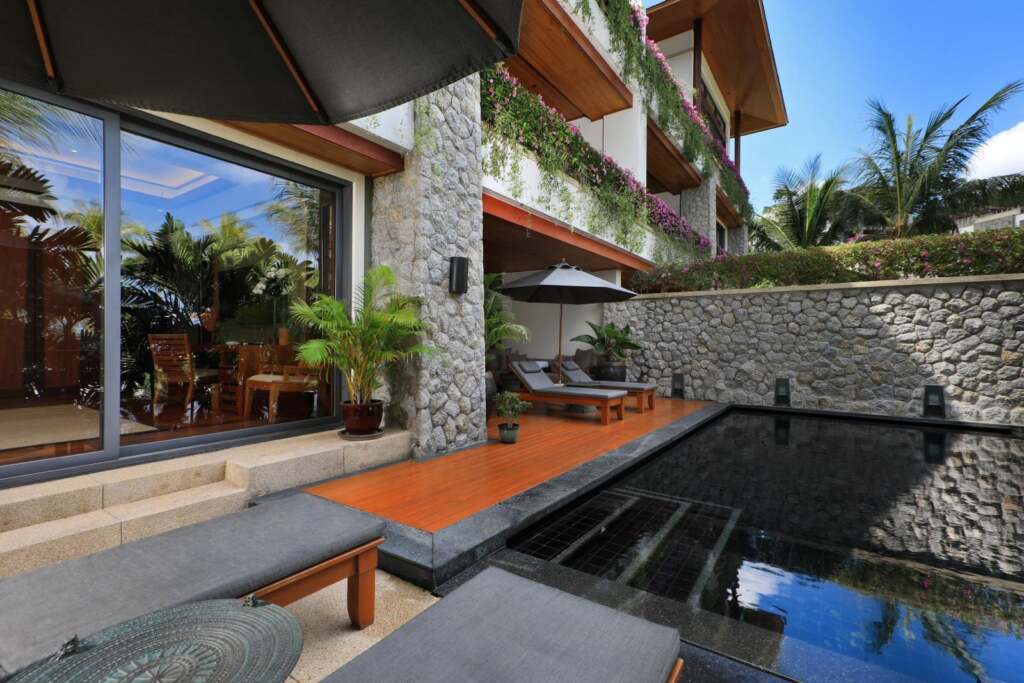
3. Mortgage Providers
- Thai Banks: Banks like Bangkok Bank, Siam Commercial Bank (SCB), and United Overseas Bank (UOB) offer mortgage loans to foreigners.
- International Banks: Certain international banks with branches in Thailand, such as HSBC or Standard Chartered, may offer mortgage products, especially for expatriates.
4. Terms and Conditions
- Loan Amount: Typically, foreign buyers can borrow up to 50-70% of the property value, depending on the bank and the type of property.
- Down Payment: The required down payment is usually higher for foreigners, often ranging from 30-50% of the property’s value.
- Interest Rates: Interest rates for foreign mortgages are often higher than those for Thai nationals, typically ranging from 4% to 8% per annum.
- Loan Tenure: The maximum loan tenure is usually around 10 to 25 years, depending on the borrower’s age and the bank’s policies.
- Currency: Some banks offer loans in foreign currencies, but most mortgages are in Thai Baht. Be mindful of currency exchange risks if you opt for a loan in a foreign currency.
5. Property Types
- Condominiums: Foreigners can directly own condominiums (up to 49% of the total area of a building). Mortgages are more readily available for condos.
- Landed Properties: Mortgages for houses or villas are more complex since foreigners cannot own land in Thailand directly. These properties are often purchased through a leasehold arrangement or through a Thai-registered company, and banks are less likely to finance such purchases.

6.Types of Mortgages
- Fixed-Rate Mortgages: The interest rate remains constant for a set period, offering stability in monthly payments.
- Floating-Rate Mortgages: The interest rate fluctuates based on the market, which can result in varying monthly payments.
- Hybrid Mortgages: These start with a fixed rate for an initial period and then switch to a floating rate.
7. Application Process
- Documentation: You’ll need to provide various documents, including:
- Passport and visa
- Work permit (if applicable)
- Proof of income (e.g., salary slips, tax returns)
- Bank statements
- Property purchase agreement
- Property Appraisal: The bank will conduct a property appraisal to determine the value of the property and the loan amount they are willing to offer.
- Credit Check: Banks will perform a credit check to assess your financial standing and risk level.
8. Legal and Financial Considerations
- Legal Advice: It’s essential to consult with a legal advisor who specializes in Thai real estate law to ensure that all aspects of the purchase and mortgage are handled correctly.
- Taxes and Fees: Be aware of associated taxes and fees, including transfer fees, stamp duty, and withholding tax.
9.Legal and Financial Considerations
- Legal Advice: It’s advisable to consult a lawyer to review the mortgage contract and ensure compliance with Thai laws.
- Taxes and Fees: Borrowers should be aware of additional costs, such as transfer fees, stamp duty, and mortgage registration fees.
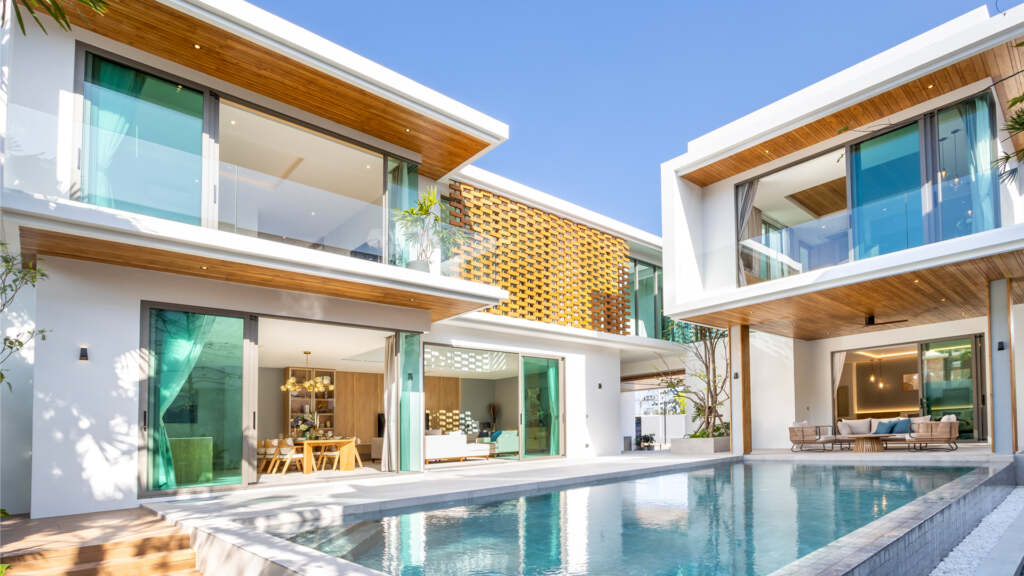
10.Repayment
- Monthly Payments: Repayment typically involves monthly payments that cover both the principal and the interest.
- Prepayment Penalties: Some mortgages may include penalties for early repayment, especially if it is within the first few years of the loan term.
11. Challenges and Risks
- High Down Payment: The requirement for a large down payment can be a barrier for some buyers.
- Loan Approval: Approval can be more stringent, with thorough background checks and higher interest rates for foreigners.
- Currency Risk: If the loan is in Thai Baht and your income is in another currency, you may face currency exchange risks.
12. Alternatives to Mortgages
- Developer Financing: Some developers offer financing options directly to buyers, which can be an alternative to bank mortgages.
- Personal Loans: Depending on your financial situation, taking out a personal loan from your home country and using it to buy property in Thailand might be an option.
13. Special Considerations for Foreigners
- Condominium Purchases: Foreigners can more easily obtain mortgages for condominiums, as they can legally own up to 49% of the units in a condo building.
- Landed Property: Since foreigners cannot own land in Thailand, mortgages for houses or villas are more complicated and often involve a Thai partner or company.
Related content on our website about real estate: Mortgage Investment in Phuket Real Estate for Foreigners. Read more : Mortgage Investment in Phuket Real Estate for Foreigners – CM TOP ESTATE (cm-topestate.com)
For further information, don’t hesitate to contact us. You can reach us via WhatsApp at +66 (0) 93-578-6028, send us an email at info.cmtopestate@gmail.com, or visit our website at www.cm-topestate.com. We are always available to assist you.
